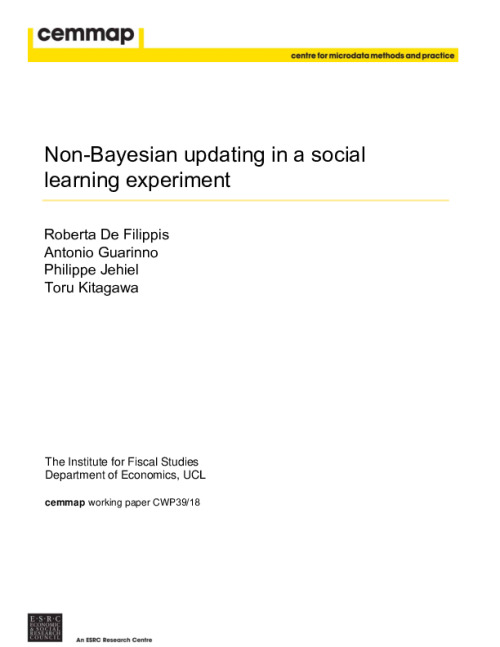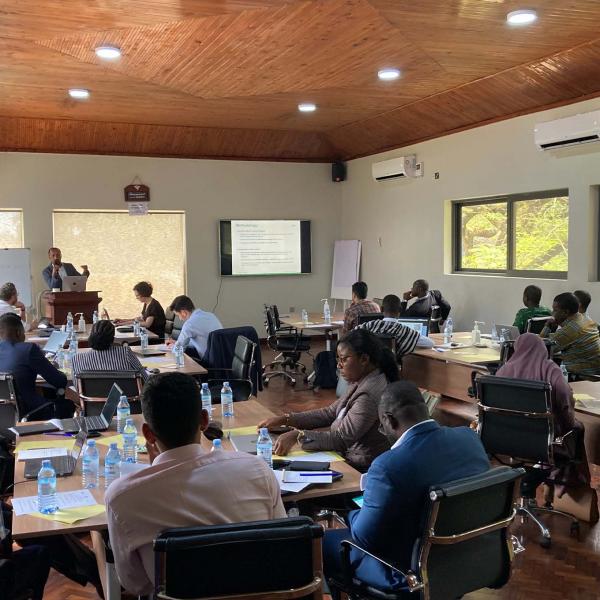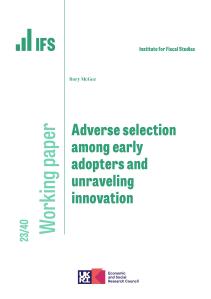Downloads

CWP391818.pdf
PDF | 625.65 KB
In our laboratory experiment, subjects, in sequence, have to predict the value of a good. We elicit the second subjects belief twice: first (first belief), after he observes his predecessors action; second (posterior belief), after he observes his private signal. Our main result is that the second subjects weigh the private signal as a Bayesian agent would do when the signal confirms their first belief; they overweight the signal when it contradicts their first belief. This way of updating, incompatible with Bayesianism, can be explained by multiple priors on the predecessors rationality and a generalization of the Maximum Likelihood Updating rule. In another experiment, we directly test this theory and find support for it.
Authors

Research Associate University College London and Brown University
Toru is a Research Associate of the IFS, a Professor of Economics at UCL and an Associate Professor in the Department of Economics at Brown University

Antonio Guarino

Roberta De Filippis

Philippe Jehiel
Working Paper details
- DOI
- 10.1920/wp.cem.2018.3918
- Publisher
- The IFS
Suggested citation
De Filippis, R et al. (2018). Non-Bayesian updating in a social learning experiment. London: The IFS. Available at: https://ifs.org.uk/publications/non-bayesian-updating-social-learning-experiment-0 (accessed: 26 April 2024).
More from IFS
Understand this issue

The economic stories that will shape 2024
5 January 2024

The materials that shape our economy
13 September 2023

Don’t cheer end of earnings squeeze: there is more pain to come
19 June 2023
Policy analysis

Is there really an NHS productivity crisis?
17 November 2023

IFS Deputy Director Carl Emmerson appointed to the UK Statistics Authority Methodological Assurance Review Panel
14 April 2023

Three key takeaways from our TaxDev Tax Expenditures Workshop
17 March 2023
Academic research

Adverse selection among early adopters and unraveling innovation
18 December 2023

Sample composition and representativeness on Understanding Society
2 February 2024

Understanding Society: minimising selection biases in data collection using mobile apps
2 February 2024